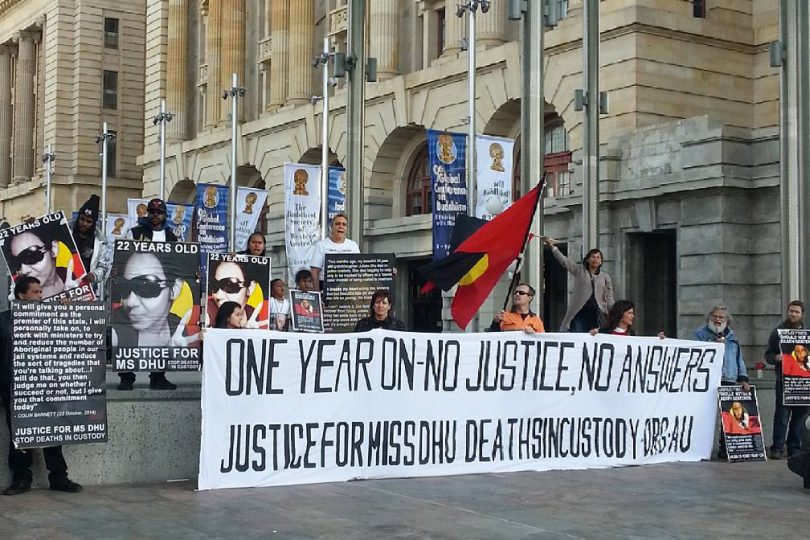Despite coronial inquests, have conditions continued to worsen for Australia’s First Nations People behind bars?
There have been many harrowing stories in recent years of Indigenous people being detained and ultimately dying over minor offences.
In 2014, Ms Dhu, a 22 year old Yamatji woman died in police custody in Western Australia, after being incarcerated for unpaid fines.
Two years later, the WA State Coroner recommended the WA Government remove these laws that allow vulnerable people who cannot pay their fines to be locked up – but still today, nothing has changed.
Another tragic case is that of Tanya Day.
Ms Day, a 55 year old Yorta Yorta woman, was arrested and taken into custody in Castlemaine, Victoria for “public drunkenness” on the 5th of December 2017.
17 days later, she was dead.
A coronial inquest that is currently investigating Ms Day’s death found that ‘inadequate police checks’ were partly to blame, as police failed to notice a significant head wound Ms Day received after falling in her cell.
Ms Day sustained a traumatic brain injury from the fall, leading to a brain haemorrhage weeks later and ultimately, her death.
Tanya Day (L) with her daughter Belinda (R) – Source: ABC News
The unfortunate thing is, instances like this are not uncommon for Australia’s Indigenous population.
Based on information from the Australian Bureau of Statistics, as of the 30th of June 2017, 27 percent of Australia’s prison population were Indigenous.
Alarmingly, almost 50 percent of total deaths in the prison population for that year were that of Indigenous people, according to data published by the Australian Institute of Criminology.
Since the 1991 royal commission, not a lot seems to have changed (as you can see in the chart above).
According to a report by Deloitte Access Economics in 2018 and the federal government’s own admission, the majority of the commission’s recommendations had either “not been implemented or only partially implemented”.
While rates of suicide have not dramatically increased, the number of Indigenous deaths involving ‘altercations’ with police or a lack of treatment while in custody are all too common and were harrowingly illustrated in a recent investigation by The Guardian.
In particular, certain states in Australia have much higher instances of Indigenous mortality in custody than others.
Both Western Australia and the Northern Territory have consistently high rates of Indigenous deaths in custody, however both states are working to address this issue.
Along with Victoria, these jurisdictions have recently implemented a CNS (Custody Notification Service) – a 24 hour phone line for Aboriginal people who are taken into custody.
Ken Wyatt, the minister for Indigenous Australians wholly supports this initiative, stating “a CNS provides an important means by which to reduce the likelihood of Aboriginal and Torres Strait Islander deaths in custody”.
By implementing programs such as this, hopefully the situation in Australia’s prison system can improve in years to come.








